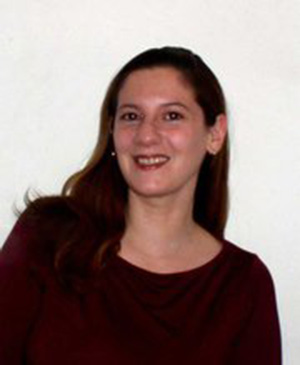By Francesca Fortunato
How do you like your Alphabet Soup? Is your chosen combination LGBT? Is it GLBT, LGBTQ or GLBTQA? Are there enough letters to signify all of the identities of people whose sexual orientation or gender expression is something other than cisgender/heterosexual? That last question is currently unanswerable.
I do know that, for me (and often for my partner) there’s a tendency to default toward the “Q” (Queer) when identifying ourselves. Perhaps it’s because Queer has a way of gathering all those Ls, Bs, Ts and even sometimes As (Allies) under its cozy wing. The problem is the lack of specificity in the term Queer. It’s a word that simultaneously erases and embraces. This is especially true when one identifies as a transgender woman (my partner) or as bisexual (me).
The question of shared identity is further complicated by the fact that my partner is lesbian identified. On the surface, it seems that we should both be happy with the label “lesbian.” After all, we are two women in an exclusive, committed, romantic relationship. What part of that doesn’t say “lesbian”? Well… the part about my past relationships having been with men as well as with women. And the part about my partner’s experience of transitioning, even if it was twenty-odd years ago.
The fact is that there is much more to her than being a transgender lesbian and much more to me than being a bisexual in a serious, lesbian relationship. Neither of us want to be “professional queers,” nor are we happy with the ways the B and T in the acronym tend to be afterthoughts, acknowledged in passing, if at all.
We’ve discussed the fact that neither of our identities seems quite real to a lot of gay and lesbian-identified folk. This is especially the case with a certain subset of lesbians, who tend to view transgender women as being “really men” and bisexual women as experimenters or as wimpy lesbians who are afraid to come out. Neither view fosters respect or trust for bisexual or transgender people.
One conviction we share is a support for each other’s right to one’s identity, not subsumed under an umbrella of convenience, not silenced, erased or forgotten. We’ve discussed what we can do to claim our spaces and assert the realness of ourselves in the larger queer community.
Though my partner is not generally “read” as transgender while walking down the street or eating at the neighborhood diner, her identity-related challenges differ somewhat from mine. This is partly because she has been an activist in the trans* community for well over a decade and is somewhat well known as a speaker, writer and pioneer. In that respect, her “T-visibility” is a given. Her struggle has more to do with the fact that the rights and needs of transgender (and other gender-nonconforming) people are so often ignored or overlooked in favor of more “sexy” and media-friendly issues like marriage equality (something we both support but which is not a burning issue for either of us).
Because I was married to a man for thirteen years before getting serious with my partner, I found that my bisexual identity (about which my ex-husband was aware) had receded, as far as the wider world was concerned. People who had known me during my marriage simply assumed that I had finally admitted to being a lesbian. The idea that both my marriage to him and my partnership with her was equally “real” (albeit, in the case of my marriage, not destined to be life-long) was something that most people who knew me could not wrap their heads around. Even my ultra-liberal, staunch ally of a mother (who knew my boyfriends and my girlfriends when I was younger) now calls me her “lesbian daughter.” I came out to her as bisexual when I was eleven. She seemed to believe me back then. Now, though… I guess the “B-word” simply embodies too much complexity.
The main reason why I am so vehement about claiming my bisexual identity is the fact that I just don’t want to have half my life experience—half of myself—negated. I don’t expect that I will ever have a sexual relationship with a man again. But that I have had such relationships is part of who I am. I am bisexual. I always have been and always will be.
So, I am trying to find ways to make sure that the “B” is not silent, even as I support my partner’s efforts to make sure the “T” is not silent either. For me, writing is one way to assert my bisexual presence and make my bisexual voice heard. I’ve recently written articles for Pretty Queer magazine. I am seeking more opportunities to write my truth for publications in which it will be read and appreciated. For the last three years I have attended the Philadelphia Trans Health Conference with my partner, during which there has been exactly one bisexual-oriented workshop offered. Because that one workshop was so well attended and deeply appreciated, I plan to submit one of my own for this coming summer, in order to do my part to make bisexual-friendly space available and bisexual voices heard.
Thanks to all the readers and writers of Bi Women, for being here, being heard and making room for me to do the same.
(The Reverend) Francesca Bongiorno Fortunato is an ordained minister, writer and sometime actress, who earns her (pathetically low) income as an Activity Director in an Adult Home. She lives with her partner and their feline employers, Alice and Trixie, in Brooklyn, NY.

